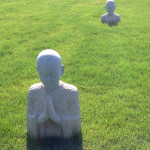Recent Comments
- Chodpa on The Place where the Primordial Speaks
- Chodpa on The Cuckoo of Presence
- Afzar on Bodhidharma’s teacher, Prajnatara
- Vajragoni on Audiobook is released
- Scott on Audiobook is released
-
Recent Posts
Categories
- A Darkness Visible
- A Docetic Assessment
- A Mystical Odyssey through the Sagathakam
- AI Creations
- Akṣayamatinirdeśasūtra
- Akṣhobhya’s Pure Land
- Ālaya-vijñāna
- Anūnatvāpūrṇatvanirdeśaparivarta
- Ariyapariyesanā Sutta
- Ascending the Noble Mountain of Primordial Perfection
- Asceticism
- Ashtavakra Gita in Light of the Unborn
- Audiobook
- Bankei Zen
- Beyond the Ascent
- Beyond the Rainbow Body
- Black Dragon Eye Mandala
- Bodhicitta
- Buddhadharma
- Buddhism’s Black Holes
- Buddhist Anecdotes
- Buddhist Hells
- Buddhist Meditations on the Tarot
- Chuang-Tzu
- Contemporary Musings
- Ḍākiṇī
- Dāsbodh
- Dharmakaya Abbey
- Dharmakaya Stick
- Divine Revelation
- Doctrine of the Void
- Dust Contemplation
- Ekacitta: Advanced Studies in Dark Zen
- Entry into the Dharmadhātu
- Eremitical Dhyani Meditations
- Exploring the Book of Revelation
- Gnostikos
- Hsin Hsin Ming
- Journey to the Center of the Mind
- Karma and Rebirth
- Korean Sŏn
- Kulayarāja Tantra—The Motherly Buddha
- Little Office of Our Lady of the Void
- LSD and Psychedelic Buddhism
- Māṇḍukya Kārikā
- Mañjuśrī Teaches Prajñāpāramitā
- Māra and Satan
- Meister Eckhart
- Mud and Water: Bassui Zen
- Mystagogia
- Nirvana
- Notes from the Iron Stupa
- Nothingness in Nāgārjuna and John of the Cross
- Obscure Religious Cults
- Preparation for the Afterlife
- Primordial Qigong
- Reflections on the Saṃdhinirmocana Sūtra
- Spirituality
- Springtime with Tozen
- Terma: A Mind Film by Vajragoni
- The Afterglow
- The Awakening of Faith
- The Bhagavad Gita
- The Book of Bodhi
- The Cloud of Unknowing in Light of the Unborn
- The Diamond Sutra
- The Divine Ātman
- The Divine Liturgy of Vajrasattva
- The Doctrine of Awakening
- The Dragon Mind of Zen Tarot
- The Elucidation of Consciousness
- The Experience of No-Self
- The Great Perfection of the Unborn Mind: A Book of Privy Counseling
- The Heart Sutra
- The Hermit's Den
- The Khaggavisāṇa Sutta: A Rhinoceros Horn
- The Lankavatara Sutra
- The Lankavatarian Book of the Dead
- The Lion's Roar of Queen Śrīmālā
- The Lotus Sutra
- The Mahāparinirvāṇasūtra
- The Naga Chronicles
- The Platform Sutra
- The Ratnagotravibhāgaśāstra
- The School of the Spirit
- The Secret Golden Light of the Unborn
- The Soul
- The Śūrańgama Sūtra
- The Sutra of Primordial Enlightenment
- The Tathāgatagarbhatārā Tantra
- The Udāna
- The Unborn Mind Mythos
- The Unborn Mind Sessions
- The Unborn Odyssey: A Novel
- The Vajrasamādhi Sutra
- The Vimalakirti Sutra
- The Yogasūtras of Patañjali
- The Zen Teaching of Bodhidharma
- The Zen Teaching of Instantaneous Awakening
- The Zen Teachings of Huang Po
- Theologia Mystica
- Tozen Teaching
- Tsung-mi: An Intimate Study
- Unborn I Ching
- Unborn Light Reiki
- Uncategorized
- Vasubandhu and the Absolute
- Wisdom from the Masters
- Wordsworth and Zen
- Yoga of the Manomayakāya
- Zen
- Zuowang
Archives
- October 2024
- August 2024
- February 2024
- January 2024
- December 2023
- November 2023
- October 2023
- September 2023
- August 2023
- July 2023
- June 2023
- May 2023
- April 2023
- March 2023
- February 2023
- January 2023
- December 2022
- November 2022
- October 2022
- September 2022
- August 2022
- May 2022
- April 2022
- March 2022
- February 2022
- January 2022
- December 2021
- November 2021
- October 2021
- September 2021
- August 2021
- May 2021
- April 2021
- March 2021
- February 2021
- January 2021
- December 2020
- November 2020
- October 2020
- September 2020
- August 2020
- May 2020
- April 2020
- March 2020
- February 2020
- January 2020
- December 2019
- November 2019
- October 2019
- September 2019
- August 2019
- June 2019
- February 2019
- January 2019
- December 2018
- October 2018
- August 2018
- April 2018
- March 2018
- February 2018
- January 2018
- December 2017
- November 2017
- October 2017
- September 2017
- August 2017
- May 2017
- April 2017
- March 2017
- February 2017
- January 2017
- December 2016
- November 2016
- October 2016
- September 2016
- August 2016
- July 2016
- May 2016
- April 2016
- March 2016
- February 2016
- January 2016
- December 2015
- November 2015
- October 2015
- September 2015
- August 2015
- July 2015
- June 2015
- May 2015
- April 2015
- March 2015
- February 2015
- January 2015
- December 2014
- November 2014
- October 2014
- September 2014
- August 2014
- May 2014
- April 2014
- March 2014
- February 2014
- January 2014
- December 2013
- November 2013
- October 2013
- September 2013
- August 2013
- May 2013
- April 2013
- March 2013
- February 2013
- January 2013
- December 2012
- November 2012
- October 2012
- September 2012
- August 2012
- May 2012
- April 2012
- March 2012
- February 2012
- January 2012
- December 2011
- November 2011
- October 2011
Meta
Tag Archives: Five Dhyani Buddhas
The Four Wisdoms

28. Q: It’s stated that the eight consciousnesses are turned into the Four Wisdoms, and then the Four Wisdoms bind together forming the trikaya; which, then, of these eight states will pool together to form one Buddha-wisdom and then, which Wisdoms are then said to be the transformation into One Consciousness?
A: The five senses (smell, taste, etc.) relate to the five states of consciousness thereby forming the Perfecting Wisdom. Intellect (sixth state), or the mental consciousness, becomes the Wonderful Observing Wisdom. The seventh state with its discriminating awareness becomes the Universal Wisdom. Lastly, the eighth consciousness alone becomes the Mirror-Like Wisdom.
Q: Well, then, do the Four Wisdoms really differ from one another or are they the same?
A: In Substance they remain the same, only the names vary.
Q: Well if their Substance is identical, why do they bare different appellations? And if it is true that these designations are only used as expedients, what is it that is constitutive of one substance that is named “Great-Mirror Wisdom”?
A: That which is still and void—motionless—is the Great Mirror Wisdom. That which is capable of facing mind-defilements without attaching to them through love or aversion, is the Universal Wisdom. That which has the ability to discriminate and discern the wide-field of sensory impressions, while at the same time never experiencing unbridled and reactionary patterns of thought is Wonderful Observing Wisdom. That which can direct all the sense faculties into observing phenomena without being constrained by dualism is known as Perfecting Wisdom.
Q: When the Four Wisdoms combine to form the trikaya, which of them solely becomes one body, and which of them comes-together to form one Body?
A: The Great Mirror Wisdom solely makes up the Dharmakaya. Universal Wisdom exclusively constructs the Sambhogakaya. While both Wonderful Observing Wisdom and Perfecting Wisdom constitutes the Nirmanakaya. Of course, the three Bodies are only specified differently to expediently assist those worldlings who lack the necessary insight to comprehend their unifying nature. For those who are fruitfully endowed with Buddha-gnosis, their Absolute Nature is neither rooted in permanence nor non-permanence.
Posted in The Zen Teaching of Instantaneous Awakening
Tagged Aksobhya;, Amitabha, Amoghasiddhi, Buddhakaya, dharmadhātuprakṛtijñāna, Five Dhyani Buddhas, Five Skandhas, Great-Mirror Wisdom, Perfecting Wisdom, Ratnasambhava, Supramundane Dharma, The Middle Way, Universal Wisdom, Wonderful Observing Wisdom
Leave a comment
Agni and the Brahman

Masefield’s final chapter, The New Brahmin, reinforces the truth that the Buddha did not condemn Brahmanism per-se, but that rather it was brought to fulfillment in the new Atman—the arahant:
Unborn I Ching, or the Book of Transformations

In his seminal work on this ancient Chinese oracle, Inner Structure of the I Ching, Lama Govinda also refers to it as the “Book of Transformations”; he also states:
Posted in Spirituality, Unborn I Ching
Tagged Five Dhyani Buddhas, Fu-shi, hexagram, I Ching, King Wen, trigram, Yi Jing
3 Comments
Part-Time Bodhisattvas

From: Sumeru-Books.Com
At that time, the Venerable Śāriputra thought, “The World-Honored One has just now discussed the merits of the Śrāvakas. May the Tathāgata also expound the complete merits of the Bodhisattvas. Why? Because all other merits come from them.”
Contemplative Sojourn
Greetings from the blogger here at Unborn Mind Zen
It’s that annual-junction wherein my time apart from active blogging begins. Since my last contemplative sojourn a lot of new material has been blogged: the Diamond, Heart, Platform, and the Surangama Sutras have been covered. Series on the Zen Masters Huang Po and Bankei have been offered, along with the beginning of a perpetual-series on the Wisdom from the Masters. Teachings from Tozen have been added as well. This last blogging-season began last August with a singular series entitled, “The Lankavatarian Book of the Dead”, exploring in-depth the nature of the six “Bardo Realms” that also encapsulated a breakdown of the Five Wisdom Tathāgatas, or the Five Dhyani Buddhas; this provided a foundation for the Noble Ascent through the Ten Tathatic-stages of Mind Development, designed to better help navigate the final Bardo-stages of the Dharmatā thus avoiding the latter stages of Re-becoming or Rebirth.
Posted in Uncategorized
Tagged Five Dhyani Buddhas, Five Wisdom Tath, meditation, solitude, Spirituality, Surangama Sutras, Unborn Mind Zen
Leave a comment
